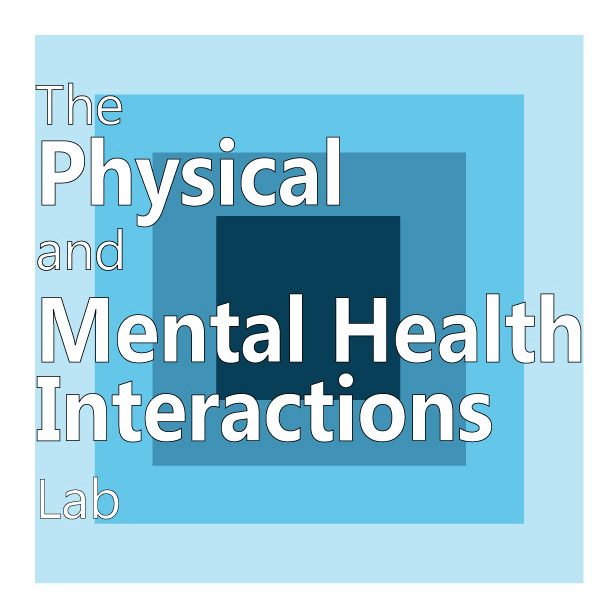
“Find a group of people who challenge and inspire you, spend a lot of time with them and it will change your life.” – Amy Poehler –
Maria Kleinstaeuber

I am a health and clinical psychologist and my passion in research has centered around the interface between mental and physical health since my PhD in 2010. I have developed a special interest in studying the phenomenon of individuals who have difficulty adjusting to persistent physical symptoms (e.g., chronic pain) and who develop psychological distress, known as Somatic Symptom Disorder (SSD). I apply both my Clinical and my Health Psychology perspectives to study these symptoms. One of my most important research endeavors has been to develop psychological interventions for individuals with SSD that are theory-driven and informed by results of basic research investigating the pathomechanisms of somatic symptom distress. Moreover, I am interested in research of the early phase in the treatment process for individuals with SSD. Many patients have suffered from SSD over many years before they receive the treatment they need. I am convinced that we could improve treatment outcomes for many patients with SSD if a biopsychosocial concept of their symptoms were communicated to them early in their treatment process and if they were guided into an interdisciplinary treatment instead of a mere biomedical treatment. For this reason, another of my most important research endeavors is to learn how we as psychologists can make early communication between doctors and patients with SSD more
effective.
I joined the Combined Clinical/Counseling PhD specialization in the Department of Psychology at Utah State University in 2021. I completed my entire training (Psychology Diploma and postgraduate clinical training) in Germany and earned my PhD in Psychology from Johannes Gutenberg-University in Mainz (Germany). I am a licensed clinical psychologist in Germany and New Zealand and am currently working on gaining licensure in Utah. I accomplished part of my postdoctoral training at Brigham Young University in Provo (Utah). During the four years before I came to Utah, I worked as researcher, lecturer, and clinician in different research and clinical institutions in New Zealand. Since 2015, I have been Secretary of the Board of the International Society of Behavioral Medicine (ISBM). I have been Associate Editor of the Journal of Psychosomatic Research since 2021. One of my central missions in the PMHI Lab is to support and involve graduate and undergraduate students with research and/or clinical ambitions and to encourage them to contribute to better care for individuals with SSD in their future professional career. If you share interests with me in the research of the interface between mental and physical health and are interested in working with me, please contact me directly via email. Learn more about my mentoring style and current research projects on our lab website.
Senyo Agbeyaka

I am a health and clinical psychologist and my passion in research has centered around the interface between mental and physical health since my PhD in 2010. I have developed a special interest in studying the phenomenon of individuals who have difficulty adjusting to persistent physical symptoms (e.g., chronic pain) and who develop psychological distress, known as Somatic Symptom Disorder (SSD). I apply both my Clinical and my Health Psychology perspectives to study these symptoms. One of my most important research endeavors has been to develop psychological interventions for individuals with SSD that are theory-driven and informed by results of basic research investigating the pathomechanisms of somatic symptom distress. Moreover, I am interested in research of the early phase in the treatment process for individuals with SSD. Many patients have suffered from SSD over many years before they receive the treatment they need. I am convinced that we could improve treatment outcomes for many patients with SSD if a biopsychosocial concept of their symptoms were communicated to them early in their treatment process and if they were guided into an interdisciplinary treatment instead of a mere biomedical treatment. For this reason, another of my most important research endeavors is to learn how we as psychologists can make early communication between doctors and patients with SSD more
effective.
My research interests revolve around examining the psychological impacts of chronic health conditions. For my dissertation, I am currently examining the influence of depression on the relationship between tinnitus severity and disturbed sleep, investigating the influence of resilience on the relationship between tinnitus and SRB using a longitudinally prospective methodological approach, and am exploring the association between tinnitus, suicide related behavior and response inhibition as measured by a go/no go (GNG) task.
John Barr

My main interests lie in clinical work (psychotherapy) and teaching. Thus far, I have focused much of my clinical time working with acceptance and commitment therapy (ACT) and traditional cognitive behavioral therapy (CBT) for use with a wide variety of psychopathology, including somatic symptom disorders (SSD). I am passionate about better understanding the most potent mechanisms of change for use with SSD-related distress and dysfunction. In the teaching realm, I enjoy working with undergraduate psychology majors and have taught many of the introductory psychology classes within our program at Utah State University (general psychology, psychology as a major and profession).
My research interests are focused on understanding processes/mechanisms of change that are uniquely helpful for individuals struggling with SSD and/or somatic symptoms, especially those unrelated to a specific medical diagnosis. I am currently working on a dissertation that employs multilevel modeling to analyze three-year follow-up data from an RCT Dr. Kleinstäuber completed in 2019 comparing CBT to CBT enriched with emotion regulation training for the treatment of SSD. Dr. Kleinstäuber (Maria) has been a wonderful mentor to me. She offers a unique balance of immense support and appropriate challenge, which has been an invaluable experience for me in my graduate school process.
Sarah Daehler

I joined the Physical and Mental Health Interactions Lab in the fall of 2021. Before coming to USU, I conducted research through the University of Pittsburgh, which had been focused largely on back pain and mindfulness. My research now focuses on the experience and treatment of somatic symptoms. I believe that a strong therapeutic relationship is vital for a positive treatment outcome, so my current research is centered on understanding and improving the relationship between patients and their healthcare providers.
Clinical work is my main professional interest and I plan on a future career in clinical practice. I love working as a therapist with adolescents and young adults using Acceptance and Commitment Therapy, Dialectical Behavioral Therapy, and Cognitive Behavioral Therapy. I also really enjoy conducting psychoeducational assessments and helping children get connected with the appropriate resources and accommodations for a variety of disorders. Outside of school, I love spending time outdoors, making pottery, and playing with my dog.
Mathias Sanyer

My current research interests include the intersections between mental and physical health, focusing on somatic symptom disorders and psychophysiology. I am particularly interested in how our brain and body interact in both the maintenance and regulation of psychological distress. I am also interested in using psychophysiology to improve our understanding, diagnosis, and treatment of psychological disorders and phenomena. I am also interested in how we can implement our findings within medical systems, through training or clinical care, to improve patient outcomes.
As a practitioner from the Physical and Mental Health Interactions Lab, I utilize process-based therapy through a biopsychosocial perspective. Across these domains, I work with individuals to identify processes of dysfunction in a network-based approach. Prior to USU, I was a research analyst at the University of Utah’s Center on Mindfulness and Integrative Healthcare Intervention Development. My work involved the psychophysiological mechanisms and outcomes of mindfulness-based interventions in the treatment of chronic pain and opioid misuse/abuse. My training at USU has included Acceptance and Commitment Therapy, Dialectical Behavioral Therapy, Cognitive Behavioral Therapy, and Parent Management Training. I have experience in psychoeducational assessment, focusing on distinguishing between potential learning disorders, other mental health diagnosis, or normal performance and behavior
